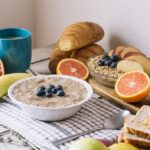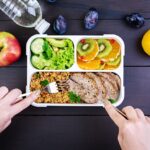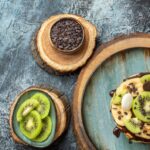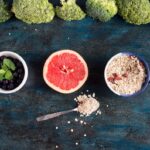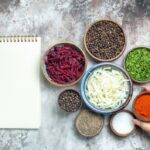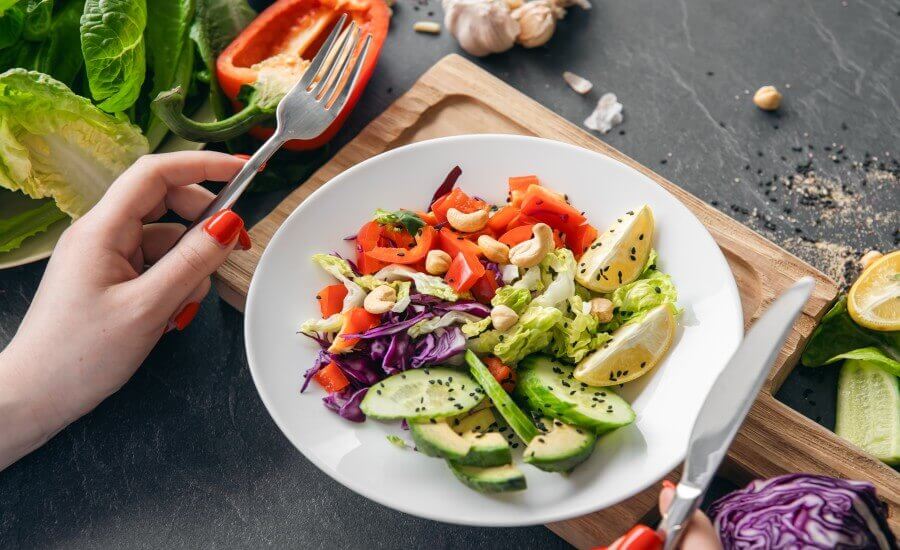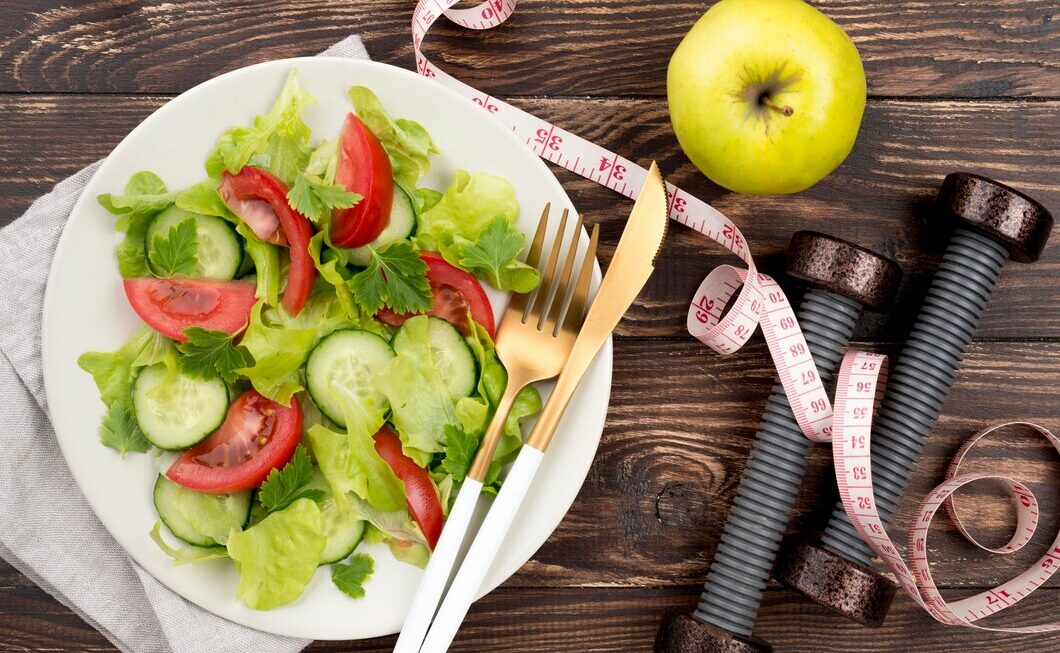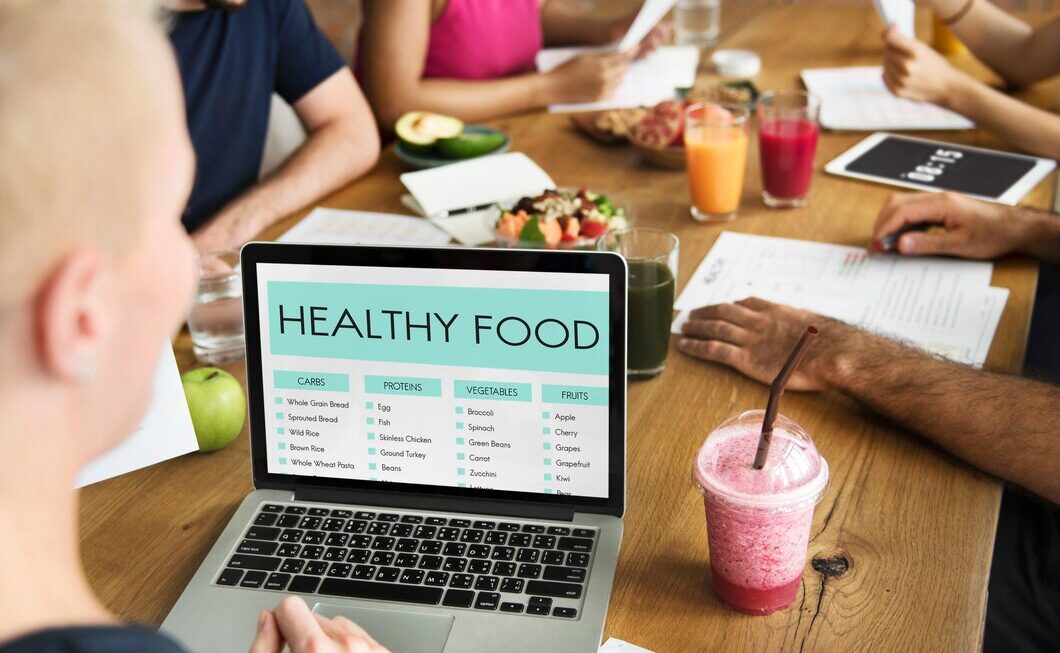Thinking “keto” and “vegan” can’t possibly exist in the same sentence? Think again! While it might seem like a nutritional puzzle, combining a high-fat, low-carb ketogenic diet with a compassionate, plant-based vegan lifestyle is not only achievable but also incredibly rewarding. This guide is your starting point, offering a comprehensive keto vegan meal plan designed to take the guesswork out of your journey. We’ll explore delicious vegan keto meals, break down what to eat, and provide you with a full 7-day menu. Get ready to unlock a new level of well-being, powered by plants and healthy fats.
What is a Keto Meal?
Let’s first define a ketogenic (or “keto”) diet before getting into the nuances of veganism. The ketogenic diet is essentially a somewhat protein-rich, high-fat, and extremely low-carb diet.
Typically, a standard keto diet’s macronutrient split looks like this:
- 70-80% of calories from fat
- 15-25% of calories from protein
- 5-10% of calories from carbohydrates
By drastically reducing your carbohydrate intake, you deprive your body of its primary fuel source: glucose. This metabolic shift forces your body to find an alternative energy source. It begins to break down stored fat into molecules called ketones, entering a state known as ketosis. In this state, your body becomes incredibly efficient at burning fat for energy, which is the primary goal of any keto diet vegan meal plan.
Types of Vegan Keto Diets
While there are several variations of the standard keto diet (like cyclical or targeted keto), most people following a vegan keto plan stick to the Standard Ketogenic Diet (SKD) model. The primary difference isn’t the metabolic goal but the source of the macronutrients.
Instead of relying on animal products like meat, cheese, and butter for fat and protein, a vegan keto diet sources these essential nutrients exclusively from plants. The challenge and the key to success is finding plant-based foods that are high in fat and protein but low in carbohydrates. This requires careful planning and a focus on whole, unprocessed foods.
Easy & Best 7-Day Keto Vegan Meal Plan
This sample menu is designed to be simple, delicious, and easy to follow.
Day 1
- Breakfast: Tofu scramble with nutritional yeast, spinach, and mushrooms.
- Lunch: Large salad with mixed greens, cucumber, bell peppers, avocado, and a lemon-tahini dressing.
- Dinner: Zucchini noodles (zoodles) with a creamy avocado pesto and toasted pine nuts.
Day 2
- Breakfast: Chia seed pudding made with unsweetened almond milk, topped with a few raspberries and slivered almonds.
- Lunch: Leftover zucchini noodles from Day 1.
- Dinner: Cauliflower crust pizza with vegan mozzarella, olives, and mushrooms.
Day 3
- Breakfast: Smoothie with unsweetened almond milk, a scoop of vegan protein powder, a tablespoon of almond butter, and spinach.
- Lunch: Leftover cauliflower crust pizza.
- Dinner: Pan-fried tempeh “steaks” served with steamed asparagus drizzled with olive oil.
Day 4
- Breakfast: Two slices of avocado on keto-friendly seed bread.
- Lunch: Creamy broccoli soup made with coconut milk and nutritional yeast.
- Dinner: Vegan coconut curry with tofu, broccoli, and cauliflower served over cauliflower rice.
Day 5
- Breakfast: Chia seed pudding.
- Lunch: Leftover coconut curry.
- Dinner: Large portobello mushroom caps stuffed with garlic, herbs, and vegan cream cheese, baked until tender.
Day 6
- Breakfast: Tofu scramble.
- Lunch: Salad with grilled seitan strips, avocado, and a vinaigrette dressing.
- Dinner: Vegan lettuce wraps filled with seasoned ground walnuts and mushrooms.
Day 7
- Breakfast: Keto smoothie.
- Lunch: Leftover lettuce wrap filling served over mixed greens.
- Dinner: “Freestyle” night! Use up your leftover ingredients to create a delicious keto vegan bowl or stir-fry.
Foods to Eat on a Keto Meal Diet Plan
Stocking your pantry and fridge with the right items is crucial for success.
- Healthy Fats: Nuts, seeds, olive oil, coconut oil, MCT oil, avocados, and avocado oil are all good sources of fat.
- Plant-Based Proteins: Tofu, tempeh, seitan, and low-carb vegan protein powders.
- Low-Carb Vegetables: Spinach, kale, broccoli, cauliflower, zucchini, bell peppers, asparagus, and Brussels sprouts.
- Nuts and Seeds: Almonds, walnuts, pecans, macadamia nuts, chia seeds, flaxseeds, and hemp hearts.
- Berries (in moderation): Raspberries, blackberries, and strawberries.
- Dairy-Free Alternatives: Unsweetened almond or coconut milk, vegan butter, vegan cream cheese, and coconut cream.
- Flavor Enhancers: Nutritional yeast, fresh herbs, spices, lemon juice, tamari (or coconut aminos), and sugar-free sweeteners like stevia or erythritol.
Keto Vegan Meal Plan Benefits
Combining these two powerful dietary approaches can offer a unique set of advantages:
- Sustainable Weight Management: The high-fat, high-fiber nature of the diet promotes satiety, helping you feel fuller for longer and naturally reducing overall calorie intake.
- Improved Blood Sugar Control: By minimizing carbohydrate and sugar intake, this diet can help stabilize blood glucose levels, which is beneficial for metabolic health.
- Increased Energy and Mental Clarity: Many people report steady energy levels and reduced “brain fog” once their bodies adapt to using ketones for fuel.
- Ethical and Environmental Alignment: You gain the health benefits of ketosis while adhering to a compassionate, plant-based lifestyle that is better for animal welfare and the planet.
- Rich in Fiber and Phytonutrients: A well-planned vegan keto diet is packed with low-carb vegetables, providing essential fiber for digestive health and a wide array of protective plant compounds.
Tips for Following a Keto Diet
To make your transition smoother and more successful, keep these tips in mind:
- Hydrate and Manage Electrolytes: The keto diet has a diuretic effect. Drink plenty of water and be sure to replenish sodium, potassium, and magnesium. Add salt to your food, eat potassium-rich avocados and leafy greens, and consider a magnesium supplement.
- Plan Ahead: Meal prepping is your best friend. Having delicious vegan keto meals ready to go will prevent you from reaching for high-carb convenience foods.
- Read Every Label: Hidden sugars and carbs are everywhere. Become a detective and scrutinize nutrition labels on packaged foods.
- Be Patient with Your Body: It can take a week or more for your body to fully adapt to ketosis. You might experience the “keto flu” with symptoms like headaches and fatigue. This is temporary stay hydrated and stick with it.
- Pay Attention to Your Body: Not everyone should follow this diet. Observe your feelings and make any necessary adjustments.. Consulting with a healthcare professional or registered dietitian is always a wise decision.
Embarking on a keto vegan meal plan is a powerful commitment to your health, ethical values, and the environment. While it requires dedication and careful planning, the rewards of increased energy, mental clarity, and sustainable wellness are well worth the effort. By focusing on whole, plant-based foods and using our 7-day plan as a launchpad, you have all the tools you need to succeed.
Ready to dive deeper into the world of compassionate, healthy eating? Explore our vast library of vegan recipes and guides to support your journey!
Frequently Asked Questions (Q&A)
Here are answers to some common questions people ask about the keto vegan meal plan.
Can a vegan truly do a keto diet?
Absolutely! While it requires more planning than a standard ketogenic diet, it is entirely possible. The emphasis switches to plant-based proteins like tofu, tempeh, and seitan, as well as plant-based lipids like avocado, coconut oil, nuts, and seeds.A well-formulated vegan keto meal plan is key to ensuring you get all necessary nutrients.
How do vegans get enough protein on keto?
This is a valid concern, as many high-protein vegan staples like beans and lentils are also high in carbs. Sources of protein on a vegan ketogenic diet include:
- Tempeh and Tofu: soy-based items that are high in protein and low in carbohydrates..
- Seitan: Made from wheat gluten, it’s very high in protein (note: not suitable for those with gluten intolerance).
- Nuts and Seeds: Great sources include hemp hearts, walnuts, chia seeds, flaxseeds, and almonds.
- Vegan Protein Powder: Low-carb pea, hemp, or soy isolate powders are great for smoothies.
Is a vegan keto diet healthy?
Yes, it can be very healthy when done correctly. By focusing on whole foods like avocados, leafy greens, nuts, and seeds, you consume a diet rich in healthy fats, fiber, vitamins, and minerals. However, like any restrictive diet, it’s crucial to ensure you’re not missing key nutrients. Paying attention to electrolytes (sodium, potassium, magnesium) is especially important.
How do I start a vegan keto diet?
The best way to start is by:
- Educating Yourself: Understand the fundamentals of both veganism and ketosis.
- Organizing Your Pantry: Get rid of non-vegan, high-carb items.
- Stocking Up on Staples: Fill your kitchen with keto-vegan-friendly foods from the list below.
- Planning Your Meals: Use a meal plan like the one here to guide your first week.
What fruits can you eat on vegan keto?
Fruit intake must be very limited due to its high sugar (carb) content. However, some low-glycemic fruits are acceptable in small portions. The best options are berries.
- Raspberries
- Blackberries
- Strawberries
A small handful can be a great way to satisfy a sweet craving without kicking you out of ketosis.
Is peanut butter keto vegan?
It can be! The key is to read the label. Choose a natural peanut butter that contains only peanuts and maybe a little salt. Avoid brands with added sugar, which will quickly increase the carb count. Almond butter and macadamia nut butter are often even better choices as they are typically lower in carbs.
